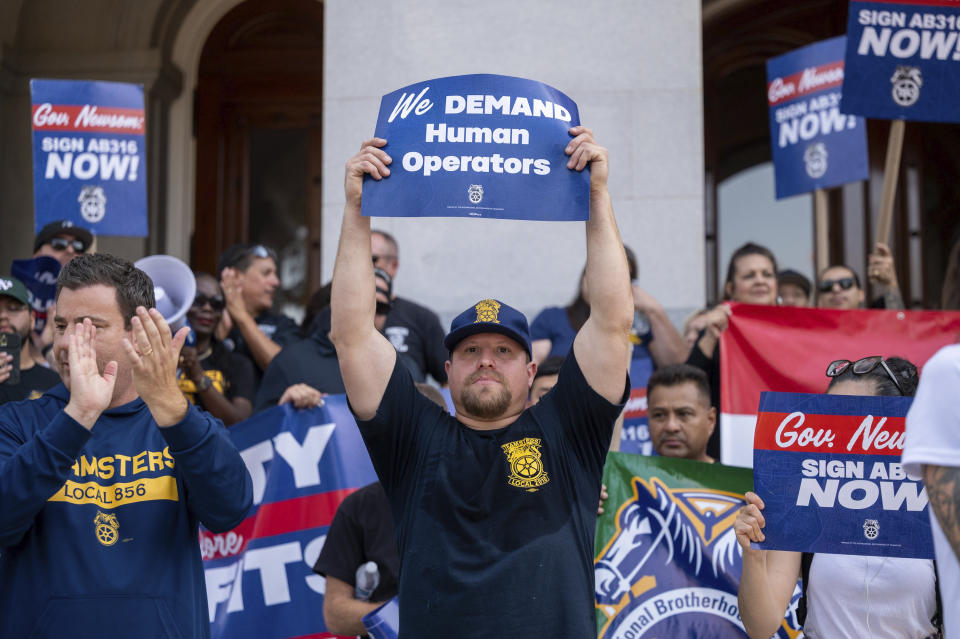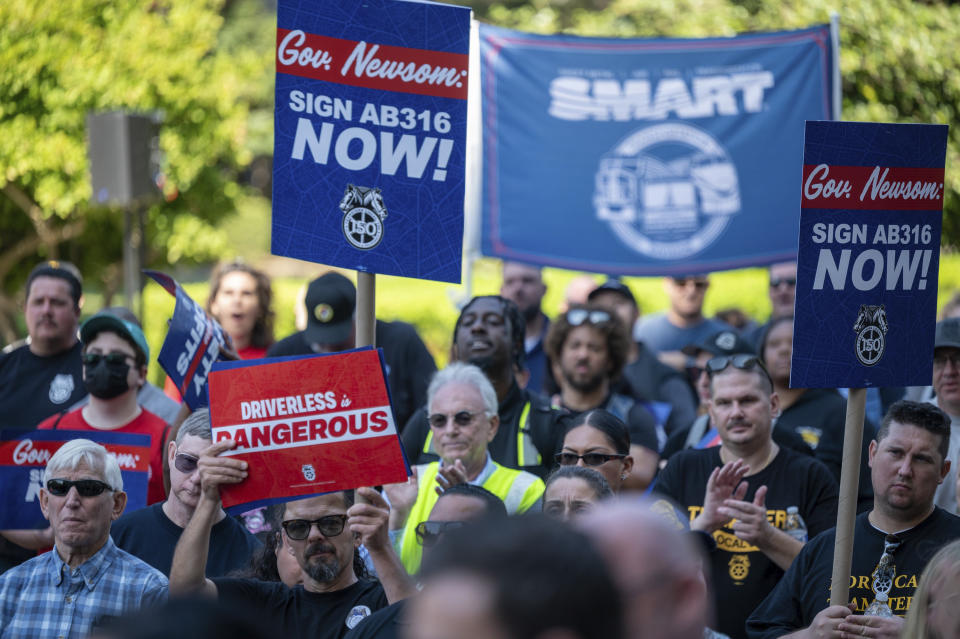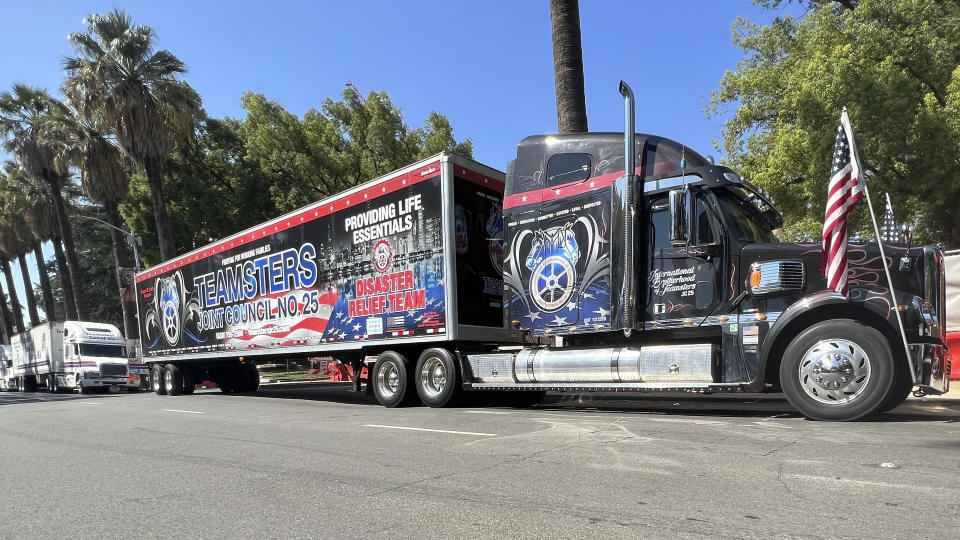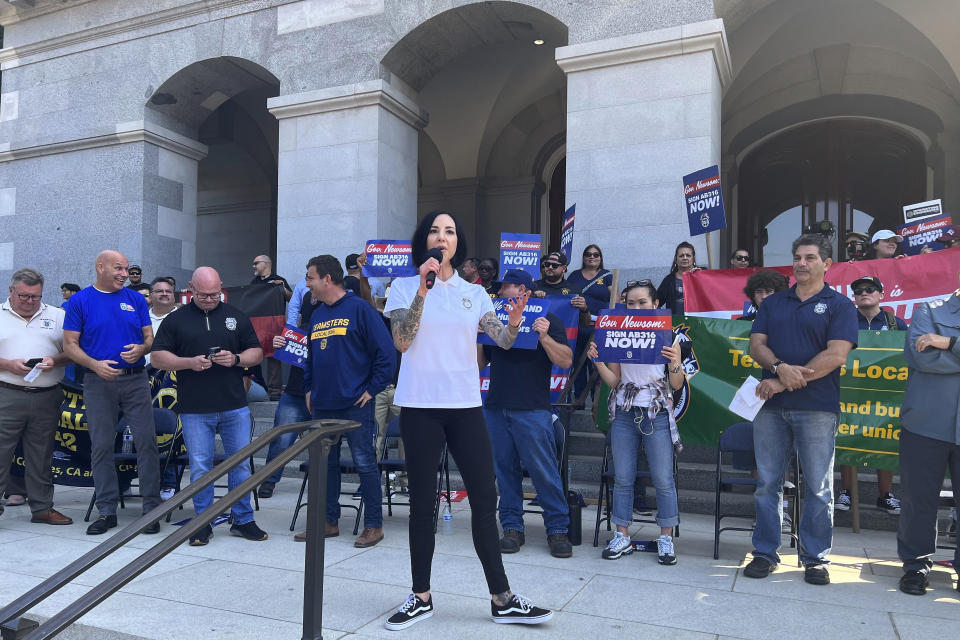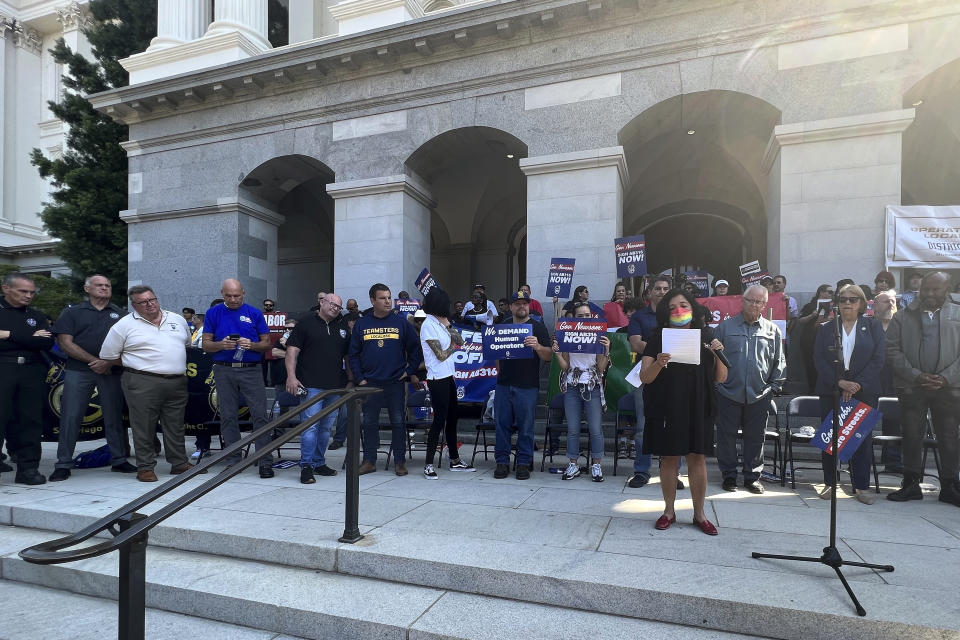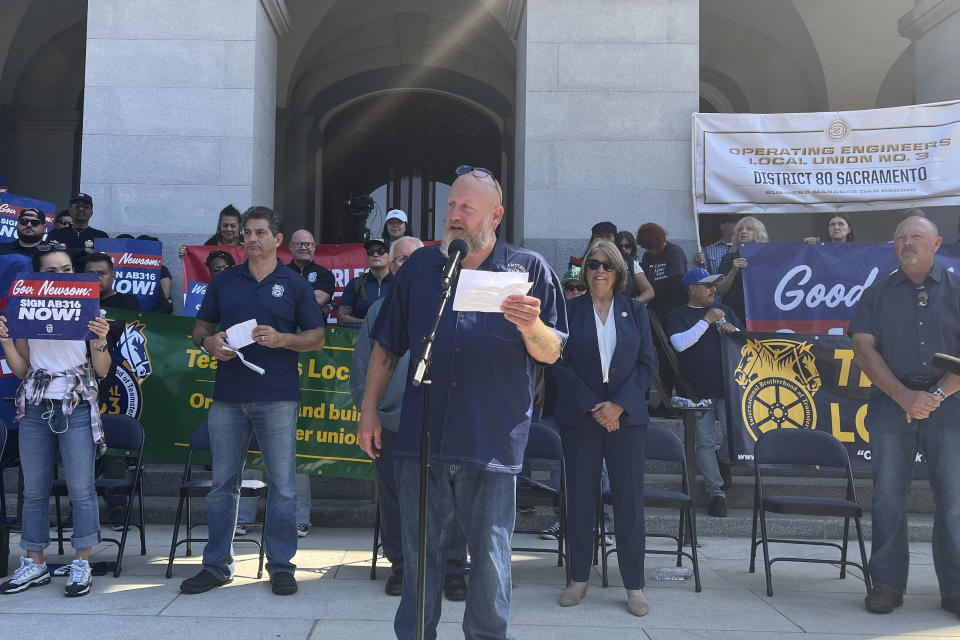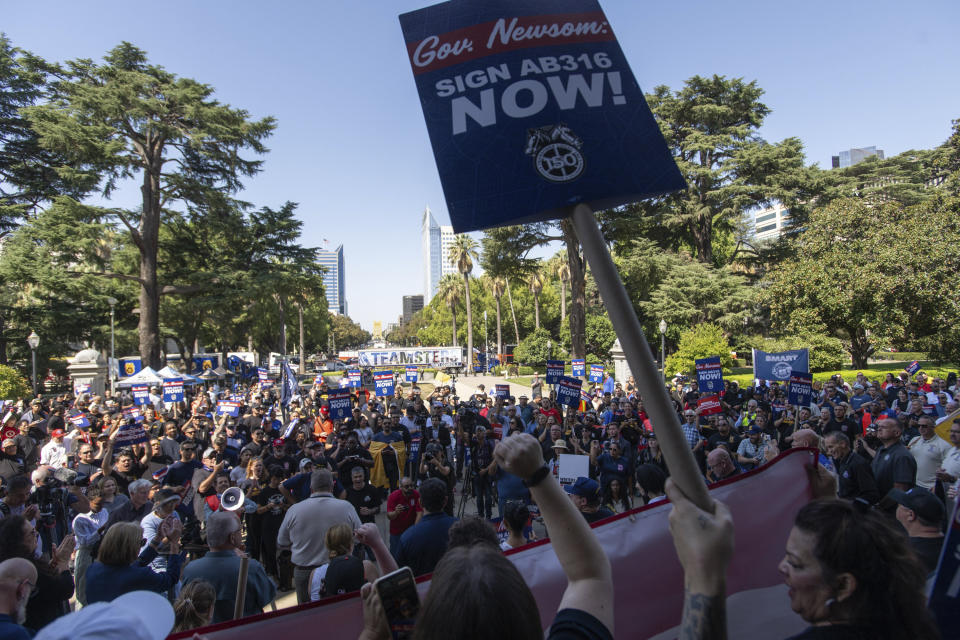California truck drivers ask Gov. Newsom to sign job-saving bill as self-driving big rigs are tested
SACRAMENTO, Calif. (AP) — California lawmakers, union leaders and truck drivers are trying to steer Democratic Gov. Gavin Newsom toward signing into law a proposal that could save jobs as self-driving trucks are tested for their safety on the roads.
The legislation would ban self-driving trucks weighing more than 10,000 pounds (4,536 kilograms) — which would include vehicles from UPS delivery trucks to massive semi-trucks — from operating on public roads unless a human driver is on board. Proponents of the bill say it would help address concerns about safety and losing truck driving jobs to automation in the future. Under the bill, the rules would be in effect until at least 2029.
Republican Assemblymember Tom Lackey, one of the bill's co-authors, said lawmakers aren't “against technology,” but they see the bill as a safer way for companies to test self-driving trucks.
“We want balance because we believe in people, and we believe in public safety,” Lackey said. “When surprises happen, physics is not your friend.”
The bill coasted through the Legislature with few lawmakers voting against it. It's part of ongoing debates about the potential risks of self-driving vehicles and how workforces adapt to a new era as companies deploy technologies to do work traditionally done by humans.
Newsom, who typically enjoys strong support from labor, is facing some pressure from within his administration not to sign it. He has until Oct. 14 to make a decision. His administration’s Department of Finance projected it would cost the state about $1 million annually to implement the bill’s requirements, and his Office of Business and Economic Development says it would push companies making self-driving technologies to move out-of-state.
“Our state is on the cusp of a new era and cannot risk stifling innovation,” Dee Dee Myers, the office’s director and senior adviser to Newsom, said in a letter opposing the bill.
Other opponents of the bill say self-driving truck regulations should be left up to the state's Department of Motor Vehicles and officials with expertise on keeping the roads safe. They argue self-driving cars that are already on the roads haven’t caused many serious accidents compared to cars driven by people. Businesses say self-driving trucks would help them transport products more efficiently in the future.
The bill comes as the debate over the future of autonomous vehicles heats up. In San Francisco, two robotaxi companies got approval last month from state regulators to operate in the city at all hours, despite concerns about these vehicles making unexpected stops and blocking traffic. In Phoenix, companies have tested self-driving trucks on highways and to deliver mail through a partnership with the U.S. Postal Service.
On Tuesday in Sacramento, hundreds of truck drivers, union leaders and other supporters of the bill rallied at the state Capitol. Drivers wore shirts representing their chapter of the International Brotherhood of Teamsters, a large union backing the bill, and chanted “sign that bill” as semi-trucks lined a street in front of the Capitol. Some chants were laced with profanities as they urged Newsom to support their cause. There are about 200,000 commercial truck drivers in California, according to Teamsters officials.
Mike Di Bene, a commercial truck driver of nearly 30 years and member of the Oakland Teamsters chapter, said human drivers have the “intuition and experience” to quickly adapt to unexpected situations, including when there is black ice on the road or when a tire blows out on the freeway. Self-driving technology that “doesn’t value” life can’t understand what’s at stake when operating massive vehicles at high speeds, he said.
Brian Rice, president of the California Professional Firefighters union, said it’s important for first responders to be able to communicate with commercial truck drivers when emergencies happen — for example if there is a spill of dangerous materials that can become a health hazard.
“Hazardous materials are everywhere,” Rice said. “We don’t need robots driving these materials around.”
Labor was at the heart of several legislative fights this year, including efforts to raise wages for health care workers, make striking workers eligible for unemployment benefits and allow legislative staffers to unionize. The Legislature sent these proposals to Newsom at a time hotel workers, Hollywood writers and actors are on strike.
In 2012, then-Gov. Jerry Brown signed a law mandating that companies get approval from the Department of Motor Vehicles before putting their self-driving vehicles to use on public roads. DMV leaders oppose the bill, saying the authority to regulate such vehicles should remain with their agency.
In August, the DMV sent a letter to Assemblymember Cecilia Aguiar-Curry, who introduced this year's bill, saying the testing of self-driving vehicles across 18.3 million miles (29.5 million kilometers) since 2014 in the state has not led to any fatalities. Autonomous vehicles were not found to be “clearly at fault” for the few collisions that caused serious injuries, the letter said.
California DMV Director Steve Gordon said in the letter that the department meets with companies that make self-driving vehicles after accidents occur to find out the root cause. If the department finds a vehicle poses an “unreasonable risk to public safety,” it can suspend or revoke the company's permit to test the vehicle on the roads, Gordon said in the letter.
The bill would require the DMV to submit a report to the Legislature updating lawmakers on the safety of medium- and heavy-duty self-driving trucks. It would require companies to report collisions that caused property damage, injury or death to the department within 10 days.
___
Sophie Austin is a corps member for the Associated Press/Report for America Statehouse News Initiative. Report for America is a nonprofit national service program that places journalists in local newsrooms to report on undercovered issues. Follow Austin @sophieadanna

